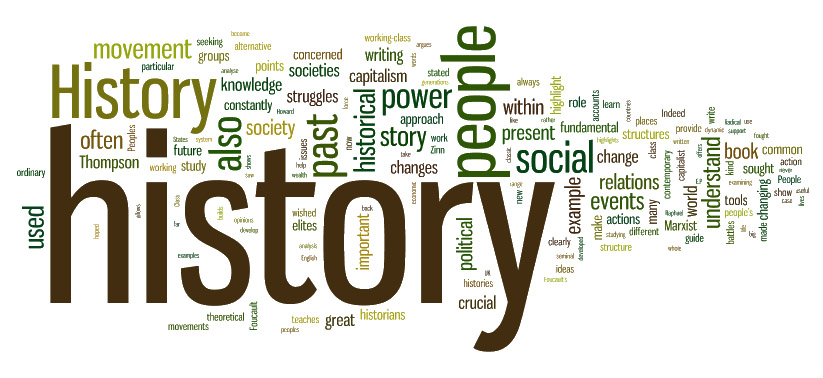David C. McCullough:
“History is a guide to navigation in perilous times. History is who we are and why we are the way we are.”
George Santayana:
“Those who cannot learn from history are doomed to repeat it.”
Why learn about history
A sound grasp of history is fundamental when seeking to understand the contemporary world. It teaches us about our heritage, enlightens and informs us about past struggles, and can help shed light on current events. Indeed, by studying and reflecting on the actions of historical groups or individuals, we may be able to gain knowledge about what course of action to pursue in the present.
History as a guide to the present
“We study the past to understand the present; we understand the present to guide the future.” — William Lund
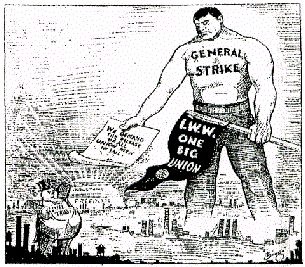 People are often surprised when the look back in history: more often than not they find that the battles they are fighting today have been fought by successive generations in the past. Indeed, a cursory glance through the history books will reveal that the struggle against social inequality in all of its various manifestations has been a recurring theme throughout history.
People are often surprised when the look back in history: more often than not they find that the battles they are fighting today have been fought by successive generations in the past. Indeed, a cursory glance through the history books will reveal that the struggle against social inequality in all of its various manifestations has been a recurring theme throughout history.
This also applies to the problems that people have sought to address such as the inequalities that come with capitalism and this is where the study of history can reveal long-term trends. For example, some of the more insidious effects of living within a capitalist social system are that surface appearances can be deceptive and misleading. In particular, capitalist social relations can appear egalitarian and equitable when, in fact, they are based on fundamental discrepancies of wealth and power. However, by having a firm grasp of history these exploitative relations are rendered visible and consequently, their very visibility makes them politically malleable.
History also allows us to understand the present through the past, as it places our struggles and problems into a wider historical context. This shows us that history is a dynamic force that builds on the past to create the future in positive (and often negative) ways. Many contemporary social movements have been inspired by or built upon examples of the past.
Nothing ever changes; or does it?
“It has always been like this and nothing ever changes” (Your friends)
History highlights the social changes that have occurred in the past. It places them in context and offers explanations so we can understand the drivers of change. Being cognizant of historical processes and understanding how quickly societies can change is crucial when examining the world.
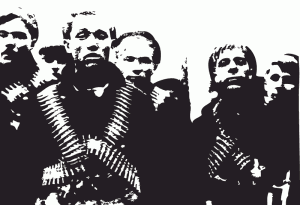 Epoch changing events such as the Russian Revolution and its subsequent collapse, the rise of Hitler and Fascism, the recent Arab Spring uprisings and past economic crises highlight how there can be massive social, political and economic changes within and across societies. These changes, in turn, can have fundamental effects upon social and political structures within those societies that can provide a suitable platform to effect social change.
Epoch changing events such as the Russian Revolution and its subsequent collapse, the rise of Hitler and Fascism, the recent Arab Spring uprisings and past economic crises highlight how there can be massive social, political and economic changes within and across societies. These changes, in turn, can have fundamental effects upon social and political structures within those societies that can provide a suitable platform to effect social change.
Despite the examples outlined above, many people still fail to understand the dynamism of history and will argue that ‘it has always been like this’ or ‘it will never be any different’. History shows that this is incorrect as societies can and do change over time and that, in addition, the world is constantly changing and adapting due to the dynamics of capitalism.
Marx discussed this capitalist dynamic in the Communist Manifesto thus:
“All fixed, fast-frozen relations, with their train of ancient and venerable prejudices and opinions, are swept away, all new-formed ones become antiquated before they can ossify. All that is solid melts into air, all that is holy is profaned, and man is at last compelled to face with sober senses his, real conditions of life, and his relations with his kind.”
In other words, Marx is arguing that social relations – the way humans interact with each other and nature – are constantly changing, driven by the underlying logic of capitalism. This dynamism constantly revolutionizes the means of production and consequently the structure of society until the time comes when these exploitative relations are laid bare and therefore open to being overthrown.
History or our story, why peoples history is important
The origins of the word history come from a combination of two words: ‘his’ and ‘story’. This is often what we are taught, his-story. His-story is often the simplistic story of heroic elites, brave kings and queens, strong governments and battles being won and lost. As Tanner states,
“Studying the past was once only done by society’s elites. It was used for particular reasons, perhaps to generate support for political regimes, to get people to back campaigns and conquests, to chart military success or celebrate the lives of what were considered important individuals, such as Kings and Saints.”
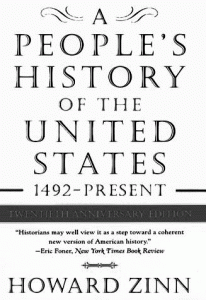 This is particularly the case with the education system, where the dominant ideology dictates what is taught. This has improved over the years with the ‘History From Below’ movement of the 1960s which championed the people’s history. Let us also not forget that history is often written and rewritten by the winners, so terrorists become freedom fighters, imperialist armies bring democracy and western-led revolutions bring progress. This simplistic view of history is not our story and it also hides a multitude of sins, as Zinn points out in his seminal book the Peoples History Of The United States,
This is particularly the case with the education system, where the dominant ideology dictates what is taught. This has improved over the years with the ‘History From Below’ movement of the 1960s which championed the people’s history. Let us also not forget that history is often written and rewritten by the winners, so terrorists become freedom fighters, imperialist armies bring democracy and western-led revolutions bring progress. This simplistic view of history is not our story and it also hides a multitude of sins, as Zinn points out in his seminal book the Peoples History Of The United States,
“The history of any country, presented as the history of a family, conceals fierce conflicts of interest (sometimes exploding, most often repressed) between conquerors and conquered, masters and slaves, capitalists and workers, dominators and dominated in race and sex. And in such a world of conflict, a world of victims and executioners, it is the job of thinking people, as Albert Camus suggested, not to be on the side of the executioners.”
This is why our story – the intricate history of people, the history from below – is crucial as it tells the story of the common people, the peasants, the working class: it is the people’s history.
We make history
It is the common people that make history: they are the driving force of history. Churchill may have been important in the Second World War, but the common people of all countries fought against fascism at a huge cost to themselves, playing a not insignificant part in that particular struggle.
Studying people’s history and the radical movements within it provides a counter-historical narrative/story of the past. By studying history that places the ordinary person at the centre of history you begin to see the bigger picture.
“This revisionist approach to writing history is in direct opposition to methods which tend to emphasize single great figures in history, referred to as the great man theory; it argues that the driving factor of history is the daily life of ordinary people, their social status and profession. These are the factors that “push and pull” on opinions and allow for trends to develop, as opposed to great people introducing ideas or initiating events.” (Wikipedia – peoples history)
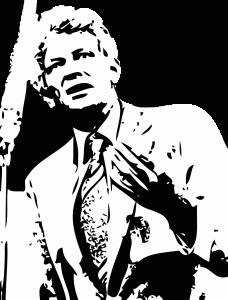 Take for example E.P Thompson’s classic book, The Making of the English Working Class (1963). This book was concerned with writing the history of the working class but not to glorify or denigrate them but to simply tell their story on their own terms. Thompson was a Marxist historian and he saw it as crucial when writing this book to show the role of the working-class in history and how the working-class was made, hence the title of the book. He wanted to show the dynamics of history in action, rather than previous histories that sought to minimise the role of the working-class. As McNally argues:
Take for example E.P Thompson’s classic book, The Making of the English Working Class (1963). This book was concerned with writing the history of the working class but not to glorify or denigrate them but to simply tell their story on their own terms. Thompson was a Marxist historian and he saw it as crucial when writing this book to show the role of the working-class in history and how the working-class was made, hence the title of the book. He wanted to show the dynamics of history in action, rather than previous histories that sought to minimise the role of the working-class. As McNally argues:
“Thompson sought to emphasise the activity of ordinary labouring people as a central factor in the historical process. In doing so he hoped to affirm the fundamental dignity of the masses who make (and have made) history. ‘I am seeking’, he wrote in a memorable passage, ‘to rescue the poor stockinger, the Luddite cropper, the “obsolete” handloom weaver, the “utopian” artisan, and even the deluded follower of Joanna Southcott, from the enormous condescension of posterity.”
The book became a classic, as Thompson sought to uncover and show the tensions and struggles that led to history being made. This is far removed from the majority of mainstream history that presents whole populations as passive subjects, not influencing the issues and debates of their time.
History is never objective
History is always written from certain theoretical and ideological vantage points. A critical account of the rise of capitalism from a Marxist would be vastly different than one from a neo-liberal economist. Each would have subscribed to a set of principles in advance that would dictate the theoretical and methodological approach to be taken and indeed, the very questions asked.
In addition, it is helpful to be aware of the fact that all historical narratives (stories) are by their very nature political, as they either support or contest the values, ideologies, and structure of society. This in itself makes the business or (re)writing history inherently political.
Recent interpretations of the Holocaust have underlined the issues that arise when researching and writing history. For instance, David Irving was jailed for his infamous denial of the Holocaust. Indeed, it transpired that he ‘persistently and deliberately misrepresented and manipulated historical evidence’, (Guardian, 11th April 2000)
E.P. Thompson’s the Making of the English Working Class was clearly a political act, as Thompson wished to restore the role of the working class in his interpretation of history. His analysis was clearly informed by his Marxist background, as he wished to counter historical studies that emphasised and glorified the elites of history.
We can also learn something from reading Howard Zinn, who in Peoples History of The United States outlined the struggles between the Native Americans and the European Conquests, the fight against slavery and the battles of trade unionists, feminists, and the civil rights movement. This text has been extensively used in US schools and is a great example of Critical Pedagogy, which Giroux defines as an
“… educational movement, guided by passion and principle, to help students develop consciousness of freedom, recognize authoritarian tendencies, and connect knowledge to power and the ability to take constructive action.”
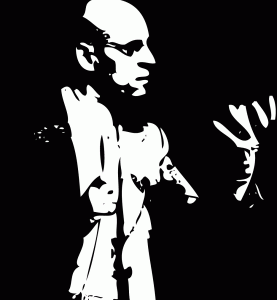 Another useful example of non-mainstream historical scholarship is the work of the French theorist Michel Foucault, who is the anti-historian par excellence. Foucault’s panorama of ‘histories’ includes alternative accounts of the construction of sexuality, madness, and crime and punishment. Indeed, these accounts also highlight how history can overlap and intersect with other disciplines in the social sciences (e.g. sociology) with fruitful results.
Another useful example of non-mainstream historical scholarship is the work of the French theorist Michel Foucault, who is the anti-historian par excellence. Foucault’s panorama of ‘histories’ includes alternative accounts of the construction of sexuality, madness, and crime and punishment. Indeed, these accounts also highlight how history can overlap and intersect with other disciplines in the social sciences (e.g. sociology) with fruitful results.
In Discipline and Punishment, Foucault utilises obscure historical sources to provide an alternative account of power and punishment in modern society. Oversimplifying, Foucault argues that whereas mainstream accounts of history view the modern penal system to be more humane in its treatment of criminals (for example by no longer subjecting people to torture), in actuality power is manifested in more insidious ways. For instance, Foucault shows how certain ‘technologies of power’ construct ‘docile bodies’ that generate pacified individuals.
By unearthing these new and obscure historical sources (his method of ‘archaeology’), Foucault was able to illuminate unidentified power structures, investigate the effects of discursive practices (the role of language in structuring experience), and subject the concept of ‘knowledge’ to a critical examination.
His work revolutionized our understanding of power and its effects; he developed theories of societal control such his concept of ‘surveillance society’ and questioned the role of ‘progress’ in history. He wanted his work to have practical uses as he stated that his theories and ideas should,
“be a kind of tool-box others can rummage through to find a tool they can use however they wish in their own area… I don’t write for an audience, I write for users, not readers.” (Foucault pp. 523–4)
This has certainly been the case with many of his analyses being utilised by a wide range of different groups.
We can now see, therefore, how learning history not only teaches about the past but can provide us with the theoretical tools to facilitate an analysis of the present. These tools are useful for revealing underlying structures. That said, history is incredibly complex and multifaceted and tools are just that: tools. They should assist but not dominate thinking.
Writing our own history (History from Below Movement)
While it is crucial to read and understand history, it is also imperative for us to continue to write our own history and to reinterpret past events from new vantage points. We need to record our own history with our own voices in order to make history our story. History should not just be left to society’s elites.
Historically in the UK, The Communist Party Historians’ Group was key in the History from Below Movement and featured some extremely prominent historians, such as Eric Hobsbawn, EP Thomson and Christopher Hill, amongst others. They were predominantly Marxist historians and were concerned with creating a new form of history which focused on the common people and their part in history. They wrote numerous books and a scholarly journal called Past & Present which promoted this new approach to history and continues to this day.
“Hobsbawm, Thompson et al succeeded in redefining history as the study of humanity; something which one could both study objectively and care deeply about. Something which belonged to everyone as much as it belonged to no-one.” (Calladine)
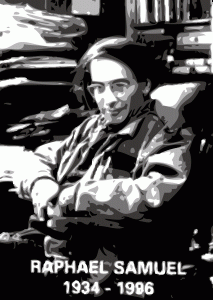 This movement was developed further by Raphael Samuel who saw clearly the importance of history. He was a lifelong socialist and he believed that history was too important to be left to bourgeois historians. He founded the History Workshop Movement which was concerned with uncovering the people’s history. Raphael Samuel was dedicated
This movement was developed further by Raphael Samuel who saw clearly the importance of history. He was a lifelong socialist and he believed that history was too important to be left to bourgeois historians. He founded the History Workshop Movement which was concerned with uncovering the people’s history. Raphael Samuel was dedicated
” .. to a special kind of history; rooted in left-wing politics, and aiming to rediscover the lives of the millions overlooked by historians of big names and big events.” (Mervyn Jones)
There are now many groups committed to producing a global people’s history, within and across all cultures which is yielding promising results. In the UK for example, there are groups such as London Socialists Historians, Radical History Network Of North East London and Bristol Radical History Group, who state that their philosophy is about looking at the history of South West of England in order
“To approach this history from ‘below’ by examining the actions and perspectives of those involved rather tha1n the views of the contemporary establishment histories.”
They also produce pamphlets on local history from this perspective and put on a range of events to promote this history from below. This group is voluntarily organised and the events are free for people to attend. They are a great example of how to popularise the history from below.
Why is history important for permanent culture
History is extremely important for establishing a permanent culture now, because as we have stated it provides the understanding of past struggles which can influence the path we take in the future. It teaches us about the hidden structures that permeate society and highlights how they operate. This knowledge allows provides us with ideas on action in order to achieve social change.
To this we would also add that it is crucial that we now record our movements and actions, our successes and failures and our hopes and dreams, for the future generations to read and build upon. We will leave the last word on why history is important to Howard Zinn, who stated when asked about what he hoped his legacy would be, said:
“for getting more people to realize that the power which rests so far in the hands of people with wealth and guns, that the power ultimately rests in people themselves and that they can use it. At certain points in history, they have used it. Black people in the South used it. People in the women’s movement used it. People in the anti-war movement used it. People in other countries who have overthrown tyrannies have used it”
References
Communist Manifesto – Marx & Engels
Peoples history – Tanner
About Us – Bristol Radical History Group – http://www.brh.org.uk/about.html
Raphael Samuel – Mervyn Jones
‘Prisons et asiles dans le mécanisme du pouvoir’ in Dits et Ecrits, t. II. Paris: Gallimard, 1994, pp. 523–4 – Foucault (1974).
Legacy – Howard Zinn
History from BelowHow The Communist Party Historians Group changed the face of post-war historiography – Calladine
Lessons From Paulo Freire in Chronicle of Higher Education- Giroux
Peoples History of The United States – Howard Zinn
Peoples History – Wikipedia
E P Thompson: class struggle and historical materialism – McNally

